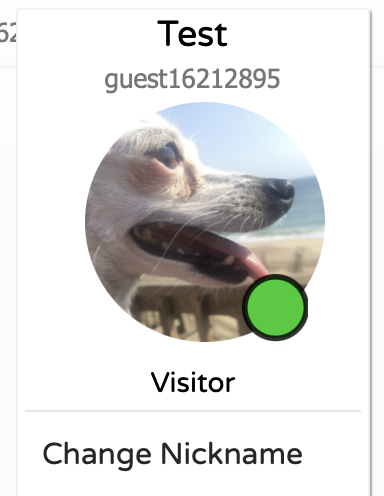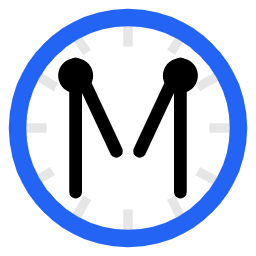Although we’re already a few weeks in, let me take a moment to say… Happy new year! 🎉
2020 has been quite a year. In a period where life has been digital for a large number of people, with still a long road to go, we’re happy to have been part of so many people’s lives and help them connect with friends, families, colleagues, and even strangers. The feedback we’ve received has been great, and has helped us ensure Minnit continues to improve.
And today, we have just released our first major update of 2021. There’s quite a bit of good news to share, so let’s get started.
First, Minnit is now using a proprietary connection library! From day 1 of Minnit, we’ve relied on the open-source Socket.IO library to handle connections, both with the frontend client and our backend server. While this certainly has its advantages, as Minnit grows, the need to use something in-house became clear. Our new connection library will help future-proof the service for years to come. We thank everyone who has ever contributed to Socket.IO for providing a great all-in-one service that handles so many edge cases and browser quirks.
Despite moving to our own library, however, we made sure to support old browsers, including Internet Explorer, and have a fallback for Polling in the event of a user’s device or internet connection not supporting WebSockets, just like Socket.IO. For your average day-to-day use cases, you may not notice anything new, but we will be monitoring this change over the coming days and have a quick kill switch to revert back to Socket.IO if need be. After extensive testing, however, we feel confident there will be no issues.
Second, we have added a “photo” parameter to our embed code for chats on Basic plan or higher. This will allow you to pre-populate a user’s photo before they even connect to the chat. For instance:
<iframe src="https://minnit.chat/Demo?embed&nickname=Test&photo=https://minnit.chat/jesse/dog.png"></iframe>
The above example will connect with nickname “Test” and photo of a dog:

Owners using Minnit via our WordPress plugin should update as soon as possible to take advantage of this functionality, as the WordPress plugin will now handle both nicknames and photos automatically. Other site owners can populate this manually via their frontend or backend code to their liking.
Like all image content, the profile photos will be delivered via our systems, and will prevent images from being able to view your IP Address or other personal information.
Third, chats on the Pro tier are now able to create keys to grant ranks. If you go to the new Staff Keys page in the Chat Settings menu, you can set these up.
Let’s say you have a simple PHP site with a “userIsModerator” boolean. If you set up a Moderator staffkey of “123456” via the Chat Settings menu, then you can set your code to be:
<iframe src=”https://minnit.chat/Demo?embed<?php if ($userIsMod) { ?>&staffkey=123456<?php } ?>”></iframe>
This code will then only output the &staffkey=123456 portion of the code if the $userIsMod boolean is set to true. Minnit will then receive the “&staffkey=123456” parameter, and, as long as that matches the key configured in the database, the user will immediately become a Moderator in the chat — no additional work needed on your part, or the Moderator’s part. This makes it the perfect way to quickly grant a team of Moderators their permissions, without them having to register ahead of time.
Important: Do not set this up via frontend code — even obfuscated code can be reverse-engineered. Only do this if you have a proper backend to prevent users from being able to view the staff key without having the proper permissions, effectively allowing them to take over your chat. Always ensure the keys are impossible to guess. If you are not sure if you can securely transmit the staff keys, do not use this feature. Better safe than sorry. If you, or your developers, have any questions, we’re always more than happy to answer at https://minnit.chat/support
Finally, the “Transcript” button has been renamed to “Report Messages” and is off by default for public chats. Many owners got this confused with “Message Archive”, and very few chats ended up using the functionality, so this was done in an effort to declutter the menu and make things more concise. To re-enable it, go to the “Moderation” tab in the Chat Settings.
That’s all for today. Thank you to everyone who’s written to us to give feedback and suggestions about the product — we’ll continue to work hard on new features, including the launch of Organizations & full OAuth support.
Here’s to a great new year!
Jesse
